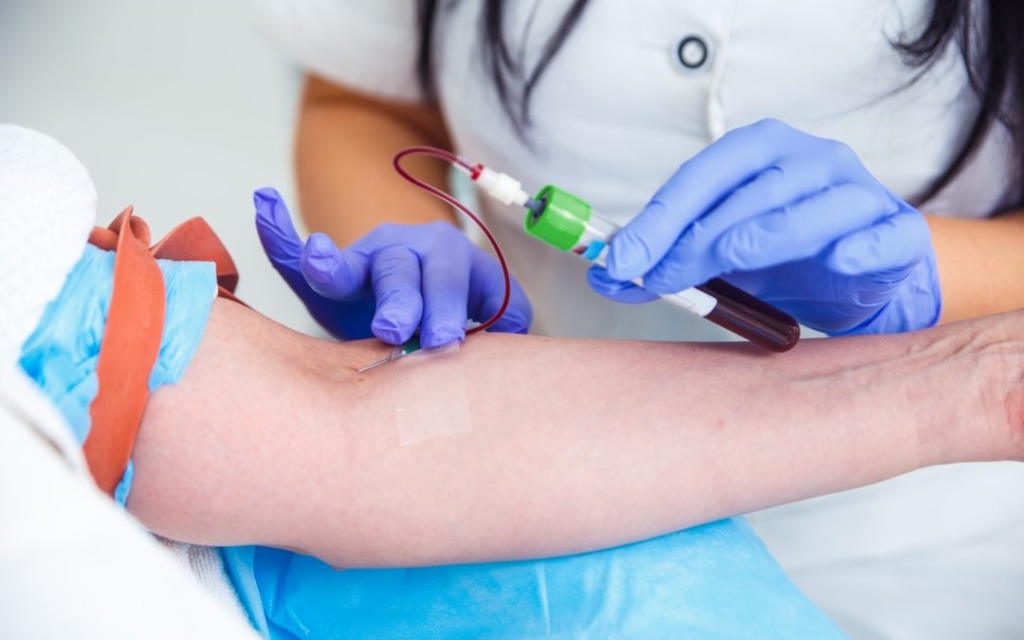**Title: Why Become A Phlebotomist – A Rewarding Career Choice**
**Intro:**
Are you considering a career change or looking for a rewarding and in-demand profession in the healthcare industry? Becoming a phlebotomist might be the perfect choice for you. Phlebotomy is the practice of drawing blood from patients for various purposes, such as lab testing, blood donations, or research. In this article, we will explore the reasons why becoming a phlebotomist can be a fulfilling and satisfying career path.
**Benefits of Becoming a Phlebotomist:**
**1. Job Stability and Growth Opportunities:**
With an increasing demand for healthcare services, phlebotomists are in high demand across various medical settings, including hospitals, clinics, laboratories, and blood donation centers. As a phlebotomist, you can enjoy job stability and potential growth opportunities as you gain experience in the field.
**2. Short Training Program:**
Unlike other healthcare professions that require years of education and training, becoming a phlebotomist typically requires completing a short training program, which can range from a few weeks to a few months. This means you can start your career in phlebotomy relatively quickly compared to other healthcare professions.
**3. Rewarding Work:**
As a phlebotomist, you will play a crucial role in the healthcare system by collecting blood samples for testing and diagnosis. Your work directly impacts patient care and treatment, making it a rewarding and meaningful career choice for those who want to make a difference in people’s lives.
**4. Competitive Salary and Benefits:**
Phlebotomists can earn a competitive salary, especially as they gain experience and specialization in certain areas of phlebotomy. Additionally, many healthcare facilities offer benefits such as healthcare insurance, retirement plans, and paid time off to their phlebotomy staff.
**5. Flexibility and Variety:**
Phlebotomists have the flexibility to work in various healthcare settings, including hospitals, clinics, laboratories, and mobile blood donation units. You can also choose to work full-time, part-time, or on a per diem basis, depending on your lifestyle and preferences.
**Practical Tips for Aspiring Phlebotomists:**
– Enroll in an accredited phlebotomy training program to acquire the necessary skills and knowledge.
– Obtain certification from a recognized organization, such as the National Healthcareer Association (NHA) or the American Society for Clinical Pathology (ASCP).
– Gain hands-on experience through internships or clinical rotations to refine your phlebotomy techniques.
– Stay updated on the latest trends and advancements in phlebotomy through continuing education and professional development opportunities.
**Case Study:**
Sarah, a recent high school graduate, decided to pursue a career in phlebotomy after attending a career fair at her school. She completed a phlebotomy training program and obtained certification within six months. Today, Sarah works as a phlebotomist in a local hospital and enjoys the rewarding nature of her job.
**Conclusion:**
becoming a phlebotomist can be a wise career choice for individuals looking for a rewarding and stable profession in the healthcare industry. With job growth prospects, competitive salaries, and a short training program, phlebotomy offers a fulfilling career path for those who are passionate about helping others and making a difference in people’s lives. If you are considering a career in healthcare, phlebotomy might be the perfect fit for you.
By following the practical tips outlined in this article and taking inspiration from real-life case studies, you can embark on a successful journey as a phlebotomist and contribute to the well-being of patients in need of your expertise. Consider the benefits and opportunities that come with becoming a phlebotomist, and take the first step towards a fulfilling career in healthcare.
